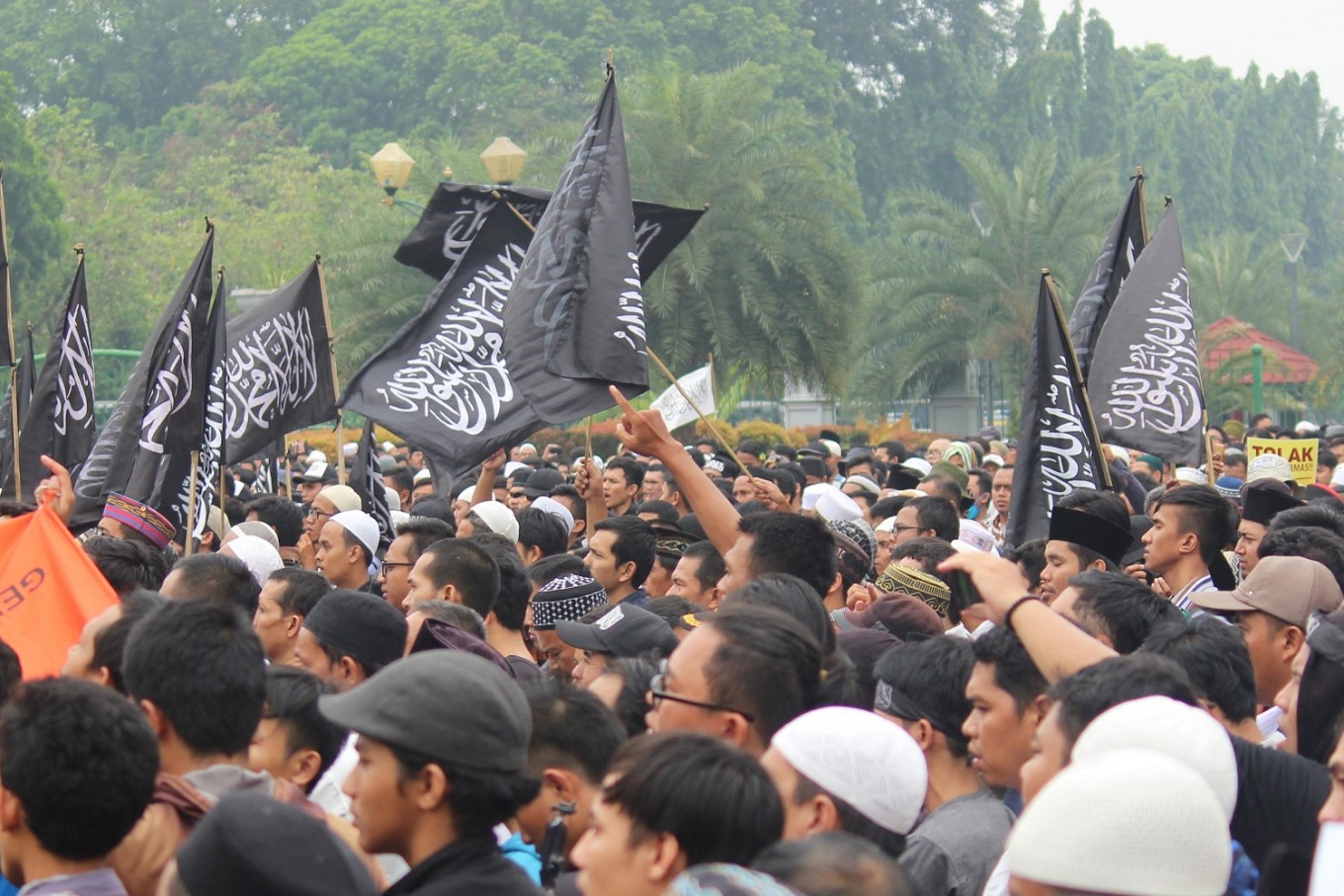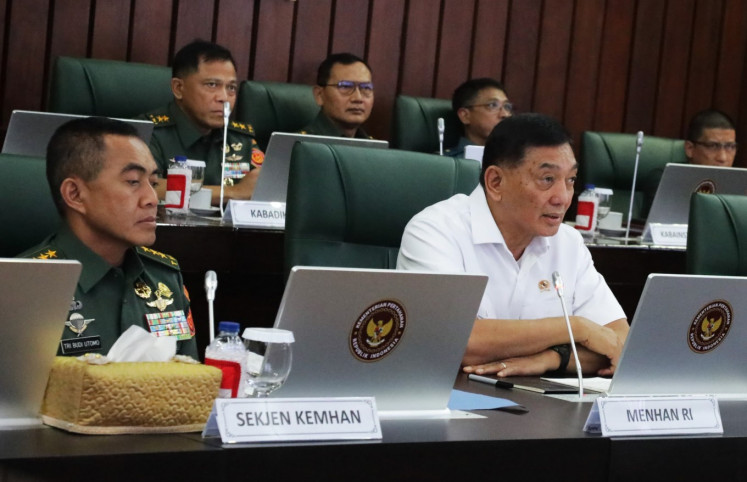Popular Reads
Top Results
Can't find what you're looking for?
View all search resultsPopular Reads
Top Results
Can't find what you're looking for?
View all search resultsChoose freedom over fear: Illiberal pluralism is threatening our democracy
The threat of extremist violence is real as we have been targeted by many terrorist attacks, but spreading fears about how radicalism is spreading wild and recklessly labeling other people as radicals would only drive people further to the extreme.
Change text size
Gift Premium Articles
to Anyone
T
he question of whether Indonesia should become an Islamic state, or become more sharia-friendly, was not supposed to be a key issue that drove people to the polls in April’s election. But no doubt for many people – regardless of their position on the issue – it was the only issue that mattered.
The presidential election was divisive for many reasons. Both candidates had many fanatic supporters who quarreled over the pettiest issues. But it was the question of religion that was most polarizing.
The last election was more than just a rematch between Joko “Jokowi” Widodo and his old rival, Prabowo Subianto. It was, in essence, an electoral showdown between two competing ideological forces: on one side are minorities and progressive Muslims anxious to retain Indonesia’s pluralism and secular character; on the other are Islamist groups and increasing numbers of born-again Muslims who wish to make the country more Islamic.
By framing the election as another episode in the ongoing culture war between the two camps, it is safe to say that the fear factor played a crucial role on April 17. One group voted for Prabowo to “defend Islam”, while the other voted for Jokowi to “prevent the country from turning into a global Islamic caliphate”.
In Hindu-majority Bali, Jokowi easily won the most votes because most Balinese consider a Prabowo presidency a threat to their religious freedom. Indeed Prabowo’s campaign courted Islamists, turning his biggest open rally at Gelora Bung Karno Stadium into a religious event.
In Banten and West Java, where the Islamist 212 movement has held strong support, Jokowi lost to Prabowo simply because the President is considered a threat to political Islam. The rationale: Jokowi banned Hizbut Tahrir Indonesia (HTI) and he is considered responsible for the prosecution of several 212 leaders.
The deepening political polarization has never been about Jokowi and Prabowo per se – it is also the result of decades of power struggle between the two competing ideologies among Indonesians. Thus the debate over reconciliation between Jokowi and Prabowo is moot if the underlying issue is not addressed.
The election is over, but the culture war is not; it has instead escalated because of all the fake news, fear mongering and agitprop during the campaign. How long will the culture war last? And how should we manage it?
Although the ideological battle will surely not end anytime soon, we should prevent it from escalating further by ensuring that the fight still falls within a democratic framework and that it would not lead to a false dichotomy that would reduce us into “good” and “evil”.
To do so we first need to eliminate the fear factor: Indonesia will not be an Islamic caliphate soon, and Islam is not under attack by anyone.
Fear, alas, is powerful. For decades, fear of being replaced and marginalized has prompted Islamists to exert their influence on majority Muslims and in turn the government to persecute minority groups. A study by the Indonesian Consortium of Religious Studies (ICRS) has shown that representatives of mainstream have used “maintaining religious harmony” as a pretext to suppress the minority.
Meanwhile, the fear of Islamic radicalism, fueled by a series of incidents of terror and intolerance, apart from the sectarian conflict in the Middle East, has led to mounting support for the limitation of free speech and freedom of association in the country, with the banning of HTI being the most glaring example.
The group’s ideology is certainly not compatible with democracy or Pancasila, and it is necessary to counter their narrative; but using the state apparatus to shut it down only gives the government a license to curtail our freedoms.
The most worrying implication of this trend, however, is when people began to label fellow citizens as “radicals” without proof. Only recently, a top Corruption Eradication Commission investigator who lost one of his eyes in an acid attack was accused of being a radical simply because of his appearance.
The threat of extremist violence is real as we have been targeted by many terrorist attacks, but spreading fears about how radicalism is spreading wild and recklessly labeling other people as radicals would only drive people further to the extreme.
The problem is exacerbated by the fact that the election blurs the lines between Islamists and Prabowo supporters, which some people may have equated, or worse, they may have conflated Prabowo supporters with members of radical groups.
With Jokowi’s victory, the defenders of pluralism may have the upper hand against their Islamist rivals, but they risk spoiling their victory by trumping democratic principles to foster illiberal pluralism – seemingly oblivious to the fact they are using the exact same tactics of their opponents.
We need a strong government or strong law enforcement to safeguard pluralism, but it must work according to democratic principles. We are now on the verge of returning to the New Order when pluralism was forced onto society – when people on both sides of this culture war were losing.
The rise of the illiberal right should not call for the rise of illiberal left. The fight against Islamic radicalism should not lead to a witch hunt against the Muslim other. It is high time for the progressive forces to steer away from practical politics – a quick fix – and campaign for liberal democracy as an ideology that could best foster pluralism.
We should stand for freedom, and not be swayed by fear.










